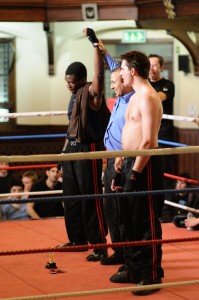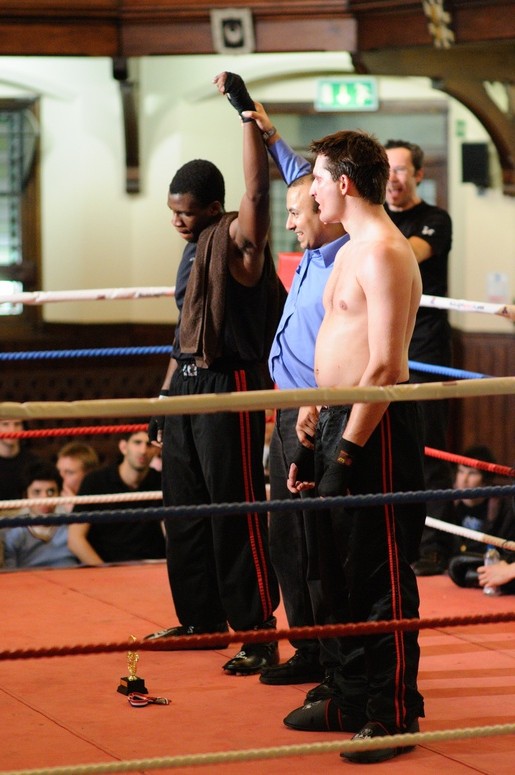 Fighting sports offer a broad range of opportunities for competitive people that are interested in measuring their skills and performance against others. Martial arts were invented to improve fighting skills, initially for warriors and soldiers then for ordinary people to help them defending themselves. Best way of testing one’s skill was to challenge somebody else and see who the winner was. Obviously when weapons are involved the result could be lethal for one of the fighters but, the evolution of unarmed combat has developed many different fighting styles that, fast forwarded into the 20th and now 21st century, originated nearly as many sports regulations. Unless you are practicing a very specific and traditional martial art like Aikido or Wing Chun you will have the opportunity of testing your skills against another fighter in a properly organised tournament.
Fighting sports offer a broad range of opportunities for competitive people that are interested in measuring their skills and performance against others. Martial arts were invented to improve fighting skills, initially for warriors and soldiers then for ordinary people to help them defending themselves. Best way of testing one’s skill was to challenge somebody else and see who the winner was. Obviously when weapons are involved the result could be lethal for one of the fighters but, the evolution of unarmed combat has developed many different fighting styles that, fast forwarded into the 20th and now 21st century, originated nearly as many sports regulations. Unless you are practicing a very specific and traditional martial art like Aikido or Wing Chun you will have the opportunity of testing your skills against another fighter in a properly organised tournament.
I have always embraced martial arts practice in a very holistic way trying to develop all aspects of self development and skill improvement they can offer; that means that for me sparring and fighting was never the only or the most predominant activity in my training. However there is no doubt that fighting itself is the ultimate test that measures how realistic you training is and how applicable the techniques you have been practicing are. I could probably describe my whole thoughts on the topic as: you must fight and being good at it but when training for it sparring is not the only part you should concentrate on.
If you are taking part in a marathon you know that there will tens of thousand participant and one winner; there a very high probability it won’t be you. So entering a marathon is the kind of thing many people do for the sake of actually doing it with very little ambitions of actually winning one. When fighting a martial arts bout you know it will be just you and another individual; by the end of the fight one of you will be the winner and the other… the looser; there is no problem about that but many people take the whole thing way too serious.
Winning is good, it makes you feel good and gives you amazing personal rewards. Losing is not so good but, particularly at the beginning, you need to take into account that losing is part of life and it’s not the end of it. Personally I don’t like losing and therefore, when I was competing, I would not enter a tournament unless I knew I worked very hard and felt ready for it I knew I had a fair chance of winning and most times I did win. Now that I am coaching athletes I consider their victory or defeat as much as if I were fighting myself. For that reason I work very closely with them and make sure I push their skills and preparation beyond their normal comfort zone so that they can have their fair chance of winning.
The actual physical martial aspect of fighting need to be blended with the psychological aspect of how one’s mind will accept and process very fast thoughts before and during the fight as well strong feeling associated to the irrational act of entering a ring or a cage and trying to beat somebody else up, even if by obeying to some rules. Many people including myself consider normal what and how they do things and some times unusual or odd other people’s approach when different. So in my opinion everybody should apply the simple rule of entering competition just when well prepared and with a fair chance of winning. I felt very uncomfortable a few weeks ago while watching the Cambridge University Tao Kwon Do club losing very badly in a Varsity fight against Oxford University. I was stunned by how poorly prepared most of the Cambridge boys and girls were and how they have been pushed into a fight without their fair chance of winning, surely due to little or no sparring practice during their training.
Losing in a martial arts bout can hurt your body and head, on top of your ego and soul; you must train hard until you have done everything that was possible to prepare your self and being ready, so to have your fair chance for a victory.


Chuck Norris once said that you only ever really loose a fight when you did not learn anything from it. Sometimes the fear and stress of losing gets in the way of performance.